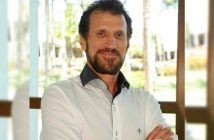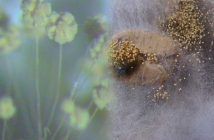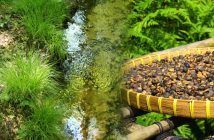Inspiring history of Sebastião Afonso helped to draw attention to Cristina, MG, as a region of high quality specialty coffees
The municipality of Cristina, in Mantiqueira de Minas, has been standing out in the universe of Brazilian specialty coffees (read about the region in the link…) some time ago. The work of the Afonso family is co-responsible for this. However, the success story in the award-winning coffee plantations of Sebastião Afonso, in fact, began with another crop, namely rice. His father, in 1963, leased some floodplain lands in the district of Pedra, in the same municipality, and began to plant rice, which allowed him to raise his 21 children.
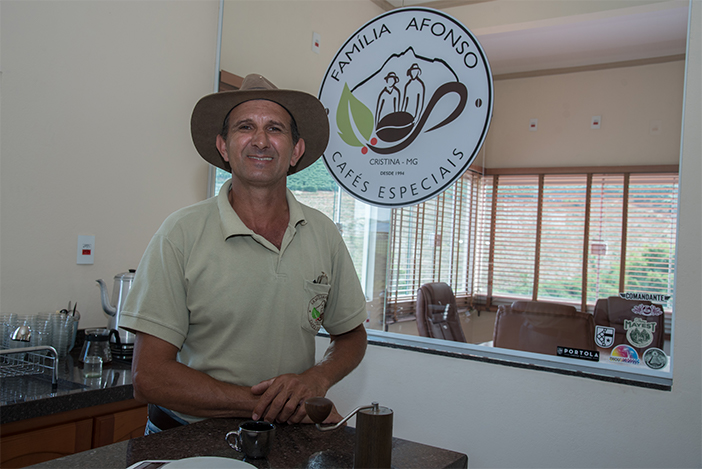
Afonso Lacerda – Sala de provas da propriedade
In the 90’s, when the price was very low, they diversified to survive and began to plant other crops, such as pod, banana, and marketed eucalyptus.
It was then that the family met to buy some lands in the neighborhood of Vargem Grande to work with coffee.
Hat sweepstake
In the third year of production, as the property stood on a hill, they divided it into 8 strips of land, one for each male brother, with 1400 feet for each. The highest was number one and lowest was eight. They put little papers with the numbers inside a hat and had a sweepstake. Afonso was in lot number four. In the end, the other brothers were negotiating with him their properties and Afonso ended up with all the lots, except one, that of Antônio Marcio, who so far also plants coffee. “My brothers found it very difficult to handle the coffee, everyone was accustomed to the rice crop,” he says.
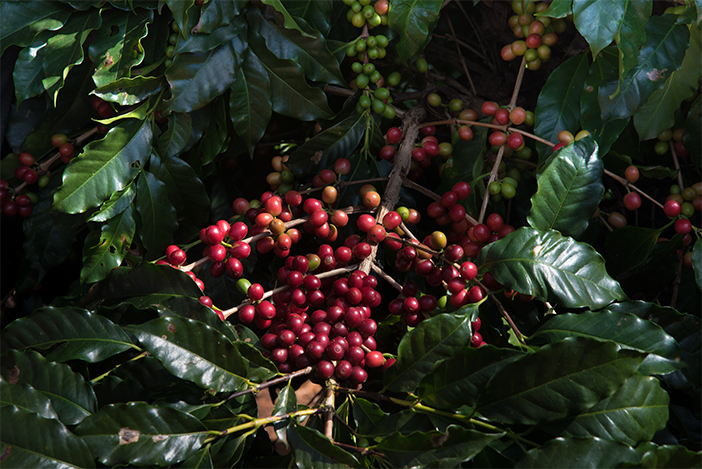
O café é colhido manualmente
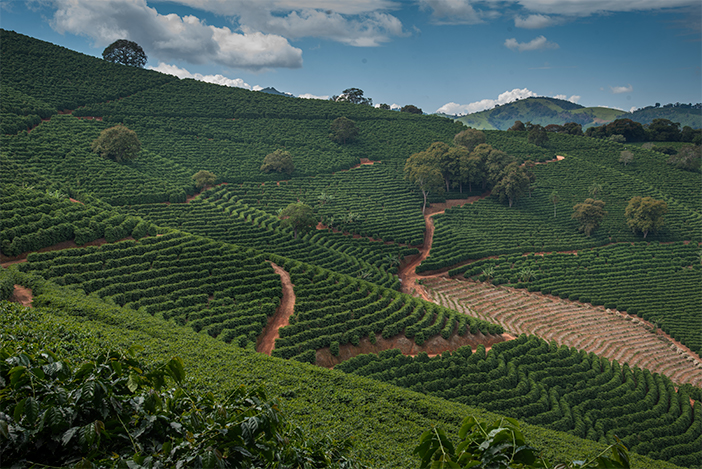
Capricho na produção de cafés especiais
With the money from selling the coffees, he managed to save a little and invest in a bigger property, the São Sebastião site. Currently, he has eight properties, totaling 360 hectares, of which 85 hectares are coffee only, with 285 thousand feet.
Awards
“Until that moment, I did not worry about the post-harvest, as we did not have a tractor,” he recalls. In 2007, when he was beginning the harvest, he decided that it was time to invest in the post-harvest and ordered a washer, a dryer and, in a pulper, and in 30 days, he put everything to work and he even built his own yard, given that, until then, he used the one owned by the neighbors.
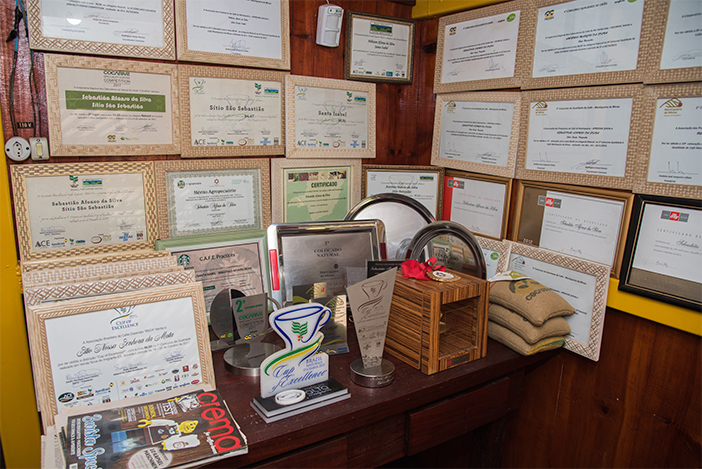
Sala de premios
As a result, already in the 2008 crop, he was among the 50 best coffees of the ìlly contest and, in the following year, he won the first contest. Later, they started using Natural processing and, as they always did selective harvesting, they ended up winning two consecutive years, 2014 and 2015, the Cup of Excellence www.allianceforcoffeeexcellence.org. In 2014, he won with a lot inscribed by his brother, Antônio Marcio da Silva, with 95.18 points. And in 2015, with 94.47, both in the Naturals category.
Forests and springs
The properties owned by Afonso are between 900 and 1300 meters high and have an average temperature of 17 celsius degrees and 1600 mm of rains. One of the great concerns of the owner and his son, Hellison Afonso, 24, who has been helping him on farms ever since, is preserving the native forests and springs. “One of the properties alone has 11 springs, which are preserved and kept out of reach for the livestock. We have over 70 hectares of forest and, in a range of 15 meters away from each water stream, the springs are adequately protected, so the cattle cannot access it. After all, it is high quality, which is evidenced through reviews that are conducted every year. In this way, we honor our certifications such as that of Certifica Minas and UTZ,” says a proud Hellisson.
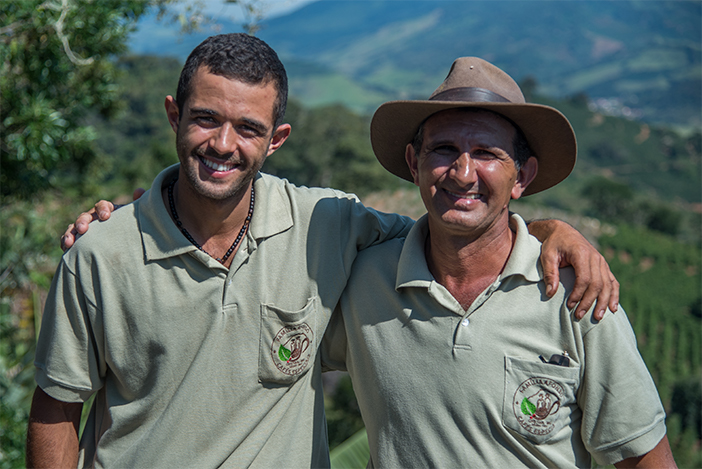
Hellison e o pai
The entire harvesting of the property is done manually, including without a sawing machine, a portable machine to aid in the harvesting of coffee that, according to experts, helps to improve crop productivity.
During the harvest, which is late, they have the assistance of 30 people, all registered by the strict Brazilian labor laws. “But over the course of the year, we’re only 12 in the loop,” says Hellisson, a fan of cafes and studying to toast his own farm. Already the youngest son, Emerson, is studying medicine in Itajubá, which does not allow him to be present in the property any more. “But each one helps as best he can,” says Afonso, not hiding the pride of his offspring.
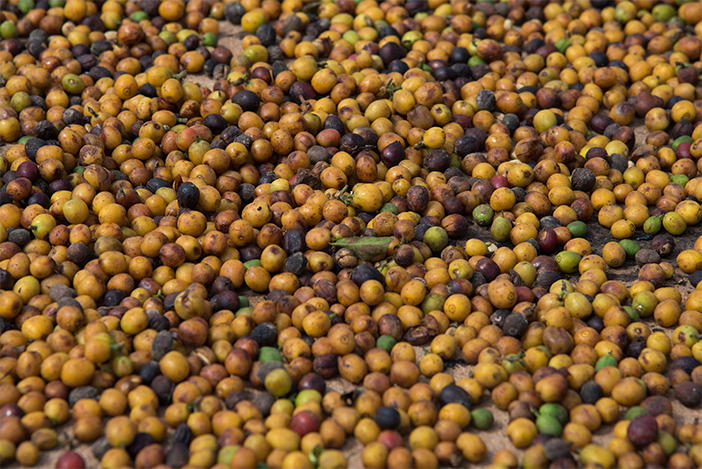
Seus cafés especiais são exportados para diversos países
The family sells their coffees through the region’s cooperative, Cocarive, www.cocarive.com.br, which markets to countries like Korea, Japan, Australia, USA, Canada etc.
“Our struggle now is to improve even more the quality of the coffees, so that we can serve all our customers. It is no use just producing one or two microlots with better notes. We have to try to make better quality coffees. Thus, we are studying fermentations better, especially with the help of professor Flávio Borém, from UFLA, www.ufla.br”, he concludes.
Photo and Videos: Clodoir de Oliveira

